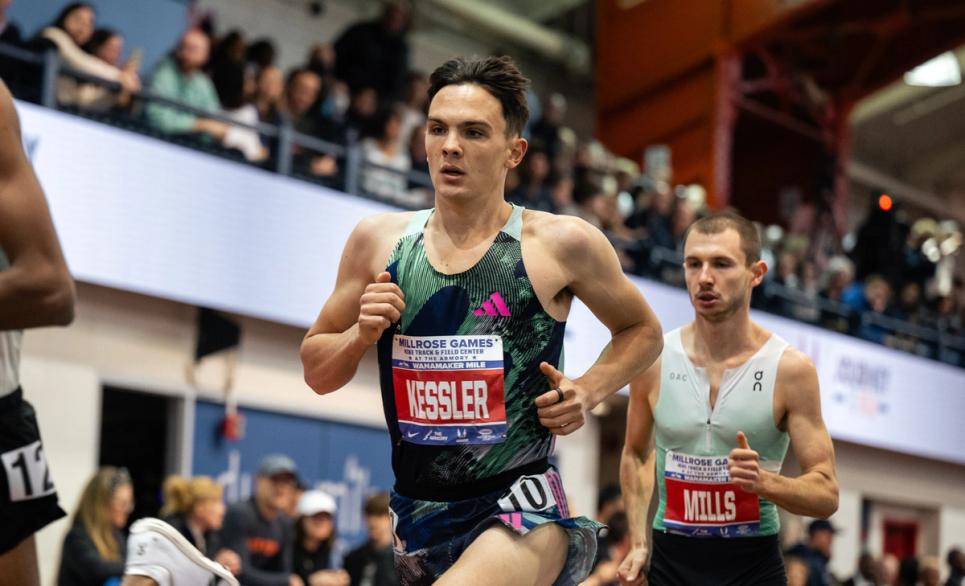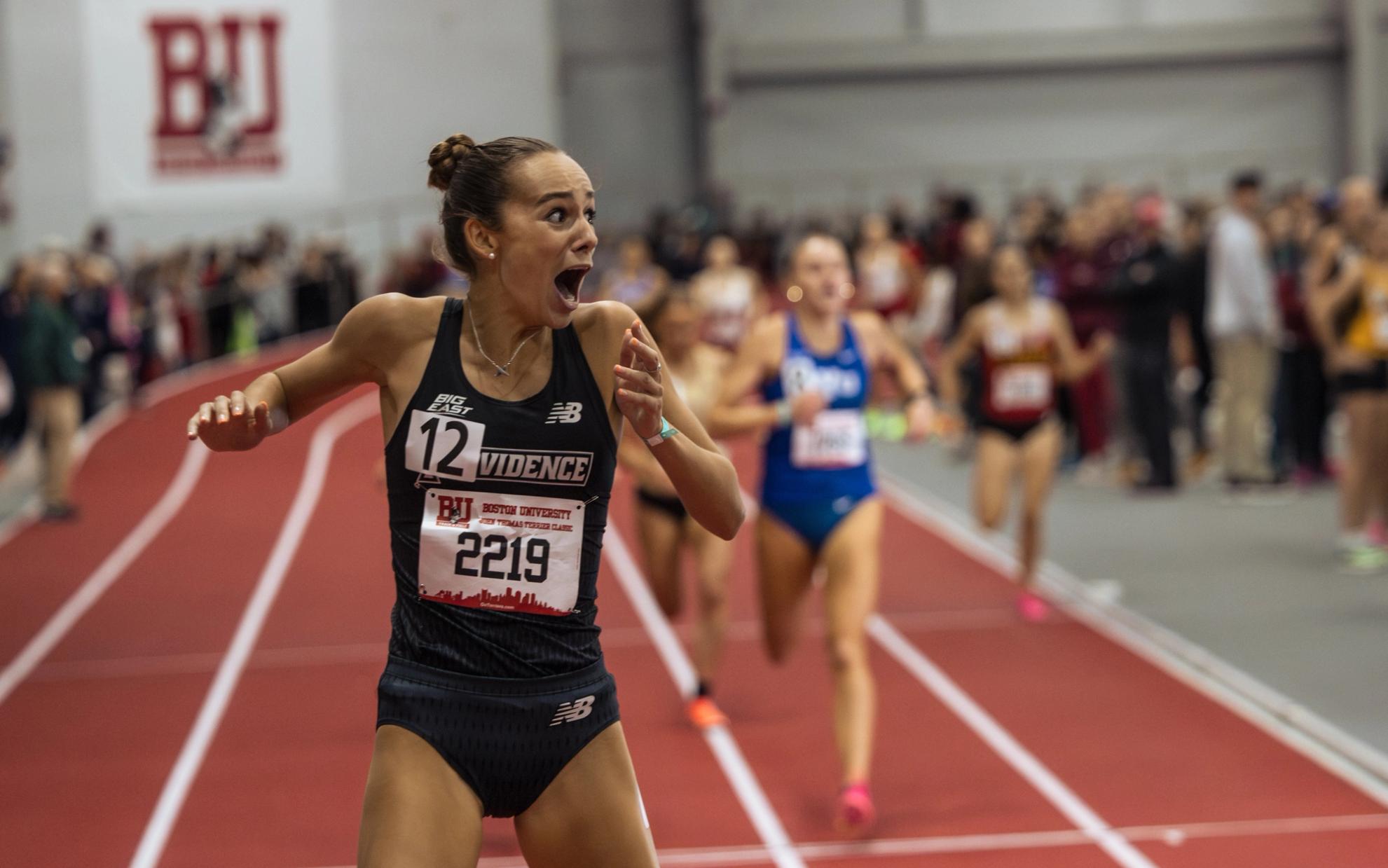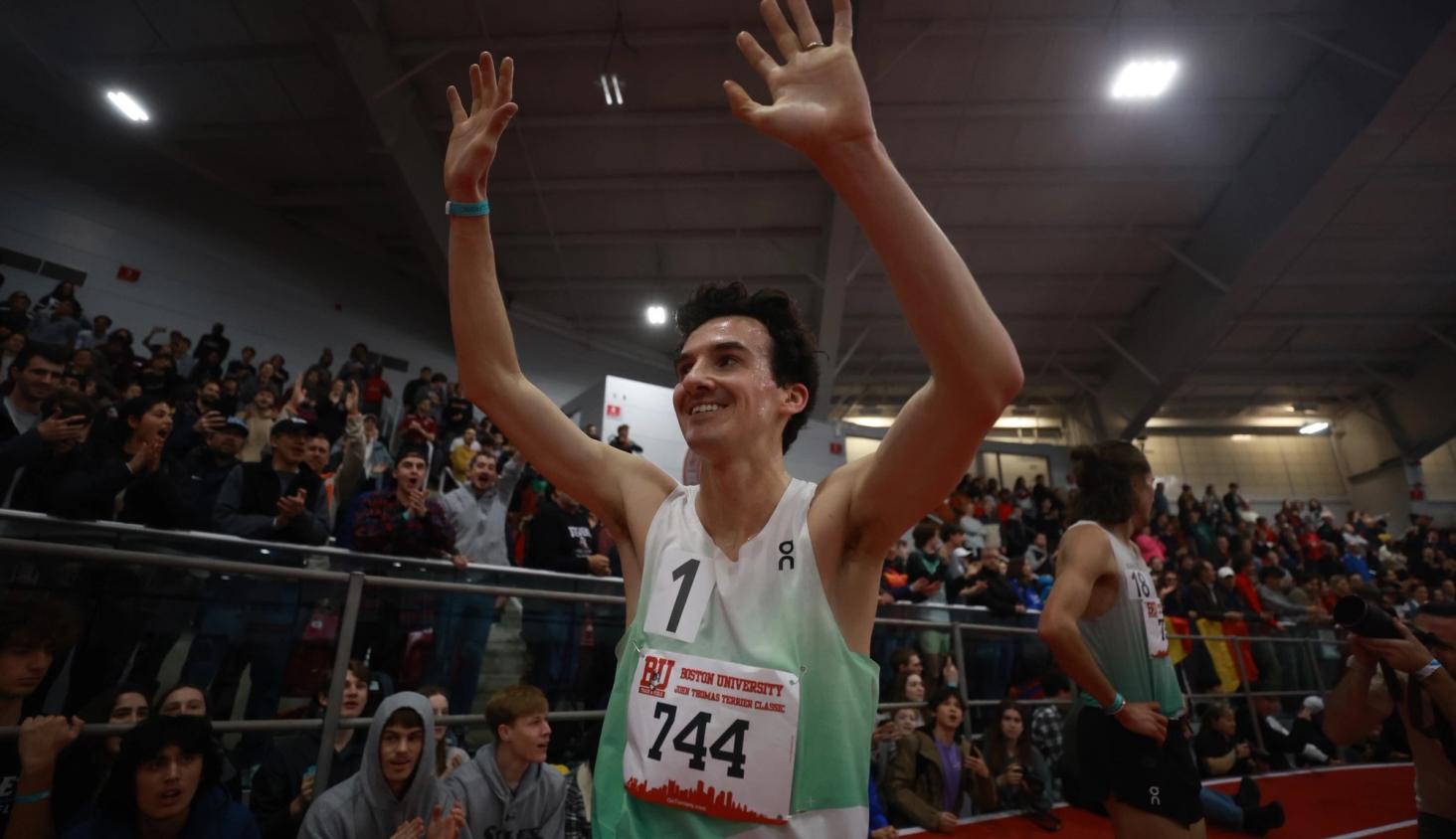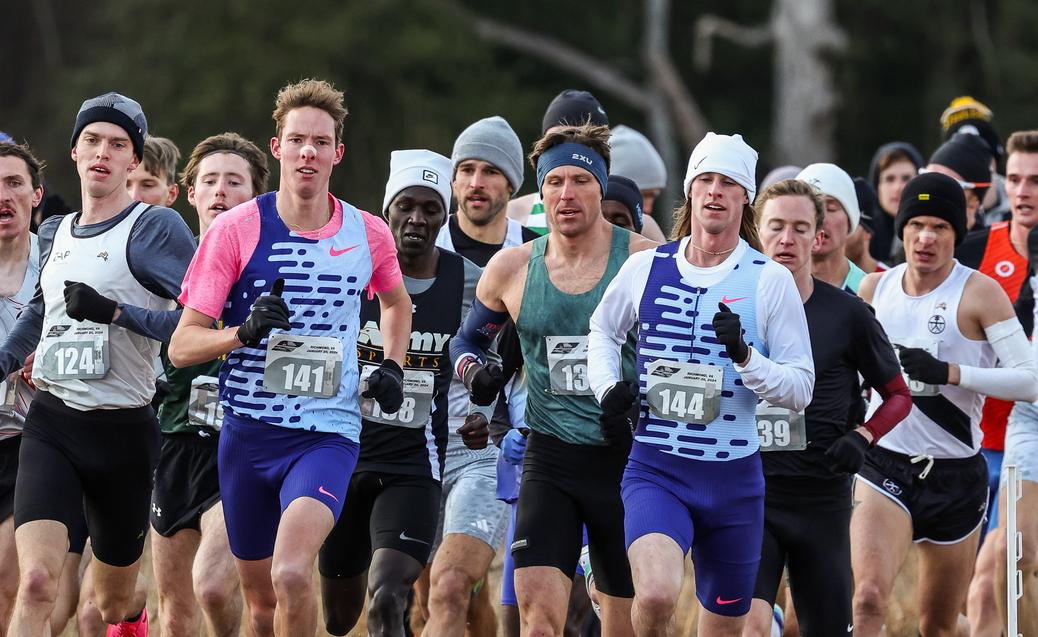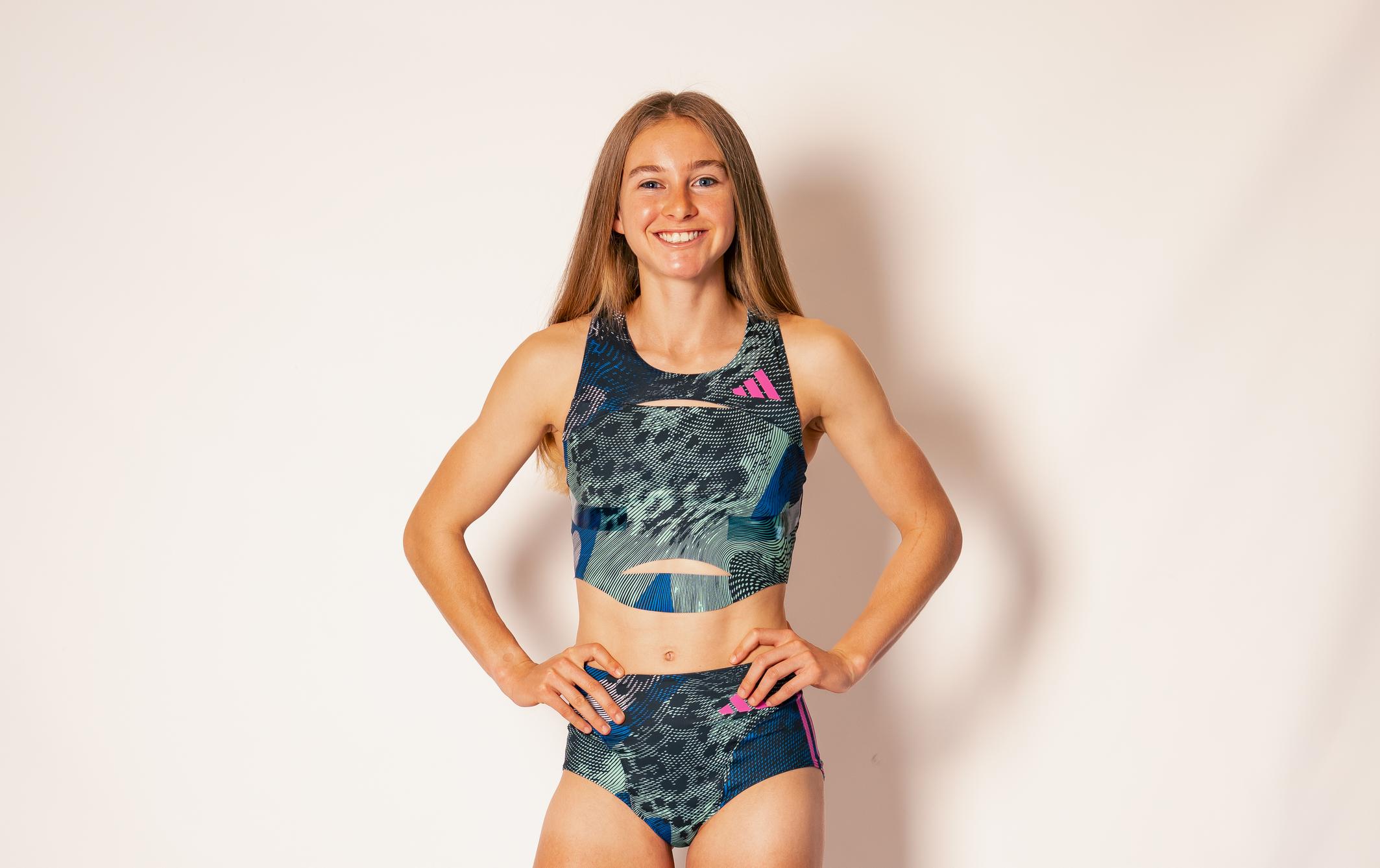February 14, 2024
Listen
"As I get older, I think mental toughness or mental resilience is being scared, being nervous, but knowing you're mentally robust and that you can handle these stressful situations."
It's been almost three years since Hobbs Kessler joined the CITIUS MAG Podcast. Back in 2021, he was a high school phenom out of Michigan before turning pro ahead of the 2021 U.S. Olympic Trials. Now, he's the world champion and world record holder in the road mile. We caught up just two days after he ran 3:48.86 to finish second in the Wanamaker Mile at the Millrose Games to become the second-fastest American man in history.
In this episode, he opens up about his training and adjustments he's made – including not running any run longer than seven miles, doubling every day and still sharpening his speed. Hobbs also shares how he's changed in his approach to racing and feels that he belongs among the best pros.
Host: Chris Chavez | @chris_j_chavez on Instagram
Guest: Hobbs Kessler | @hobbs_kessler on Instagram
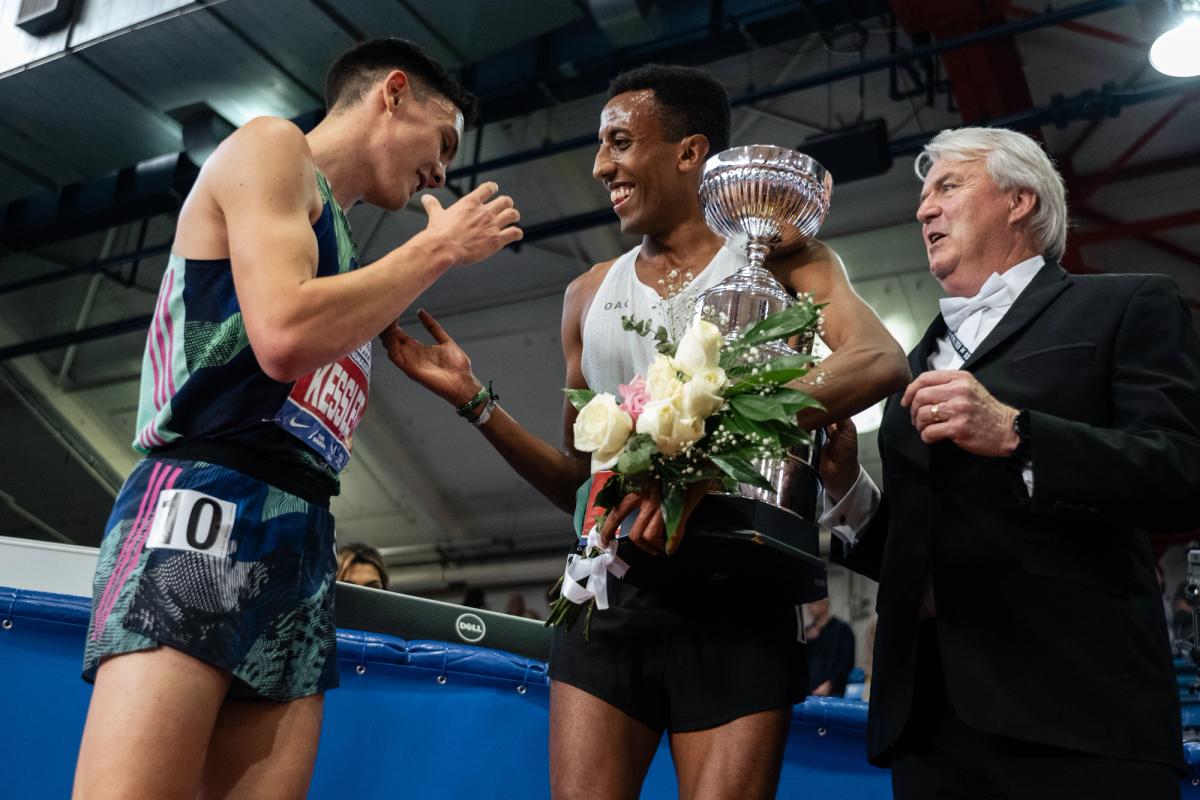
Johnny Zhang / @jzsnapz
Time Stamps:
- 4:39 - Recalling his first summer as a pro.
- 5:15 - His confidence before becoming an established pro.
- 6:23 - Some of the low points he’s experienced over the past two years.
- 8:16 - The people that have had the greatest impact on him.
- 9:07 - His training and mindset leading into the 2024 indoor season.
- 11:33 - What training in Flagstaff looked like for him in January.
- 13:57 - His training philosophy + finding what training works best for him.
- 17:50 - Experimenting with training.
- 18:31 - Breaking down his training structure.
- 20:19 - How he’s been able to continue developing speed.
- 24:13 - Race tactics and strategy.
- 26:08 - Goals heading into the Millrose Games Wanamaker Mile.
- 27:50 - Thoughts leading into Indoor USAs.
- 29:02 - Where his current fitness is at.
- 31:12 - Thoughts on the BU track.
- 32:20 - His favorite race.
- 33:45 - What race he would re-run if he could do it over.
- 35:01 - Advice on managing nerves before racing.
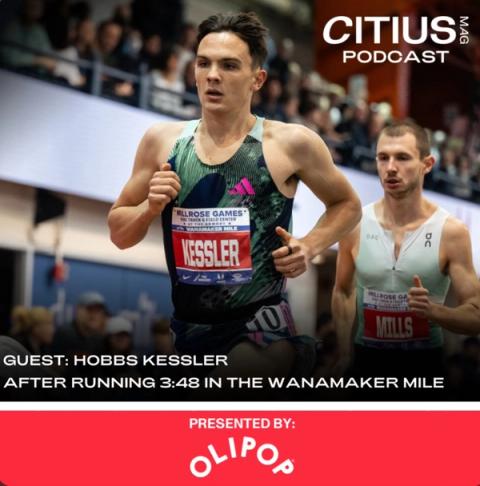
The following interview excerpt has been edited lightly for clarity. You can listen to the full interview with Hobbs Kessler on the CITIUS MAG Podcast – available on Apple Podcasts, Spotify or wherever you get your shows.
CITIUS MAG: What do you remember about your first summer as a pro? You made the semifinal at the Olympic Trials, right?
Hobbs Kessler: I would say I was pretty rattled by the end of it. I was a little out of bandwidth by the end of my senior year (of high school). I kind of wanted to be done running for a little bit because there was just so much so quickly that I was just overstimulated.
CITIUS MAG: Were you nervous at the Olympic Trials start line?
Hobbs Kessler: To be honest, I don't think I was ready to go to the Olympic Trials. I was fine through the first round, and then I remember at some point that night I just hit a wall. I was just like, ‘I have nothing left to give,’ because it was such a big, exciting year. I went from a 4:20 miler to signing a professional contract. So it was a lot. It came at me faster than I could process it. That was hard. But I think now I'm feeling more confident on where I want to be.
CITIUS MAG: What are some of those downs that you had in the last two years?
Hobbs Kessler: Mentally I was set up for failure that year because everything had gone perfect in 2021 and you just kind of expect to build off that. In reality, that's not really how progress works. There's going to be bumps and you can be a better runner and the results might not speak for it. There was a lot more I had to navigate that year. It just wasn’t as smooth or pretty as I was hoping. I was like, ‘Oh, I'm going to make the team and it's just infinite success.’ It didn't take me long to realize, that's not how this sport works.
The biggest hiccup was I got my first injury ever at the end of indoors that year and that was really challenging. I'm kind of glad that time is over. I slowly built up fitness and then bonked again because it wasn't real fitness, it was kind of fake fitness. It was just up and down and I ended with like a 3:45 1500m. I had some good performances there too, but it was just a really big year of learning. I made a lot of mistakes that everyone I think has to make. So I got this out of the way and I'm not going to make them again. It was just a big growth year. It set up the success I’m having now.
CITIUS MAG: Were there signs in training leading up to your race in Boston that indicated that you were ready for a breakthrough?
Hobbs Kessler: Once I started training, I didn't miss a session or a day or anything, really. So I got confidence through consistency and just getting fitter and fitter. And then in the month of January, that's kind of the danger zone, right before you race. You’re fit, you have a really big work capacity, and you really want to prove to yourself that you're fit. I was really lucky to have a lot of good guidance. We were really cautious and only did a few specific sessions.
I knew I had it in my legs and I didn't use it in the workouts, which is a mistake I've made in the past where I'm trying to prove fitness to myself and just leave my race in the sessions. So it was the consistency combined with confidence in the training philosophy. But you never know until you race. So it was still a little nerve wracking because I was expecting all these good things to come – but again, you never know. Training is not the not a perfect indication of race readiness.
CITIUS MAG: At the Millrose Games, you shared that you hadn’t done a run longer than seven miles yet, but you're still getting up to 75 to 90 miles a week. How did this whole thing come about?
Hobbs Kessler: Ronnie (Warhurst) is pretty hands off. And as he's gotten older, he's gotten more and more hands off. So his athletes really have the freedom to explore whatever philosophies they want and I've really taken advantage of that and really try to understand how to make myself as good of a runner as possible. It's been a lot of experimenting on myself with seeing what works and what doesn't and a lot of talking to smart people about how to develop a system that really works for me. Ever since August last year, I've really gotten after it and have gone deep into training and figuring out what works. We're getting to the point now where we're developing a system that works well for me, even if it's a little unorthodox.
CITIUS MAG: When you’re deep into your research, what does that look like? Where are you looking? Without giving away all your secrets.
Hobbs Kessler: Nothing secret. The best resource I've found is just talking to coaches and physiologists and other athletes, because there's a lot of really smart, thoughtful people. I’m asking them questions and then experimenting on myself, seeing what works and then just learning basic physiology. I don't know too much, but I know enough to have a basic understanding of stuff.
CITIUS MAG: Explain the seven mile run thing. Why aren't you doing runs above eight miles and what's the point of that? But you're still doubling.
Hobbs Kessler: I'm a big believer in doubles. My whole career, I was basically doing eight miles in the morning and four at night. The only problem is I would kind of bonk a lot of days, five or six or seven miles into an eight mile run. They started feeling like obstacles and I just started experimenting with other ways to split up mileage to make it go down easier. So I landed on doing six in the morning and six at night most days and it went down easy. Not that much mental stress. Not that much fatigue. And then I slowly was able to turn 12 mile days into 13 or 14 mile days.
I've really noticed a difference in the recovery I get from it. I feel like it's less fatiguing and I get the same basic volume – especially now that I'm running quite a bit higher volume of quality. It just really helps keep my easy days easy. So I'm a big believer in it. A lot of people aren't. I'm sure there's cons to it, but so far it's been working and I'm pretty bought in.
CITIUS MAG: How have you fine-tuned your race savviness?
Hobbs Kessler: It's still kind of a work in progress, really. I’ve made a lot of mistakes. Tactics are a lot easier to mess up when you're not in shape. I don't think I was in the shape I wanted to be in the last two USA (Championships). You really have to be spot on with tactics. I was neither in shape nor spot on. The last two races I just got behind the rabbit, so there wasn't a ton of tactics. That's something I really want to get better at and am working on. I don't know if I've perfected it yet, but I am getting better at instincts… Everything's so easy in hindsight. You’ve got to know, ‘Alright, we're going up to the bell, you’ve got to fight for your spot,’ which is something I didn't do well this weekend. Hopefully I'll learn and know next time.
CITIUS MAG: Did a tiny part of you think you could have gotten the mile world record at Millrose?
Hobbs Kessler: I just wanted to win the thing. I actually was pretty proud of my fitness there. If I had done a better job of being more aware around 250 to 150 to go, and just gotten up on Yared’s shoulder, I could have really been in contention. I don't know if I would have won, Yared’s really good, but he also had to do 800m of really hard work, so who knows. But hopefully I'll be in position next time.
CITIUS MAG: Hobbs Kessler in 2021 was nervous on the starting line before going up against the pros. What is 2024 Hobbs telling himself before getting sent to the starting line?
Hobbs Kessler: This is something I've really been working on, actually. I hate the call room. It's so scary. And for the longest time, my definition of mental toughness was being in the call room and not being scared and not being nervous. As I get older, I think mental toughness or mental resilience is being scared, being nervous, but knowing you're mentally robust and that you can handle these stressful situations. And trusting your fitness is there, trusting yourself and your instincts, that all the pieces are there and it's not going to fail. It's okay to be nervous.
I met with a sports psych not long ago and I was like, ‘I want to be in the call room and be the least scared, and he was like, ‘Hobbs, we're not measuring how nervous you are in the call room. It's about how fast you run. It's okay to be nervous. You can handle it.’ That's my biggest piece that I've been working on. And the closer the race gets, the more calm I am, because I trust that the pieces are there. But it's always going to be scary. It's no less scary now than it was. As you get better, the stakes keep rising. That's the game. That's the sport.
Support The Sponsor

OLIPOP
OLIPOP is a prebiotic soda with only 2-5g of sugar that is actually good for your gut health. – and it's delicious. Use code CITIUS25 for 25% off non-subscription orders. Learn more here.
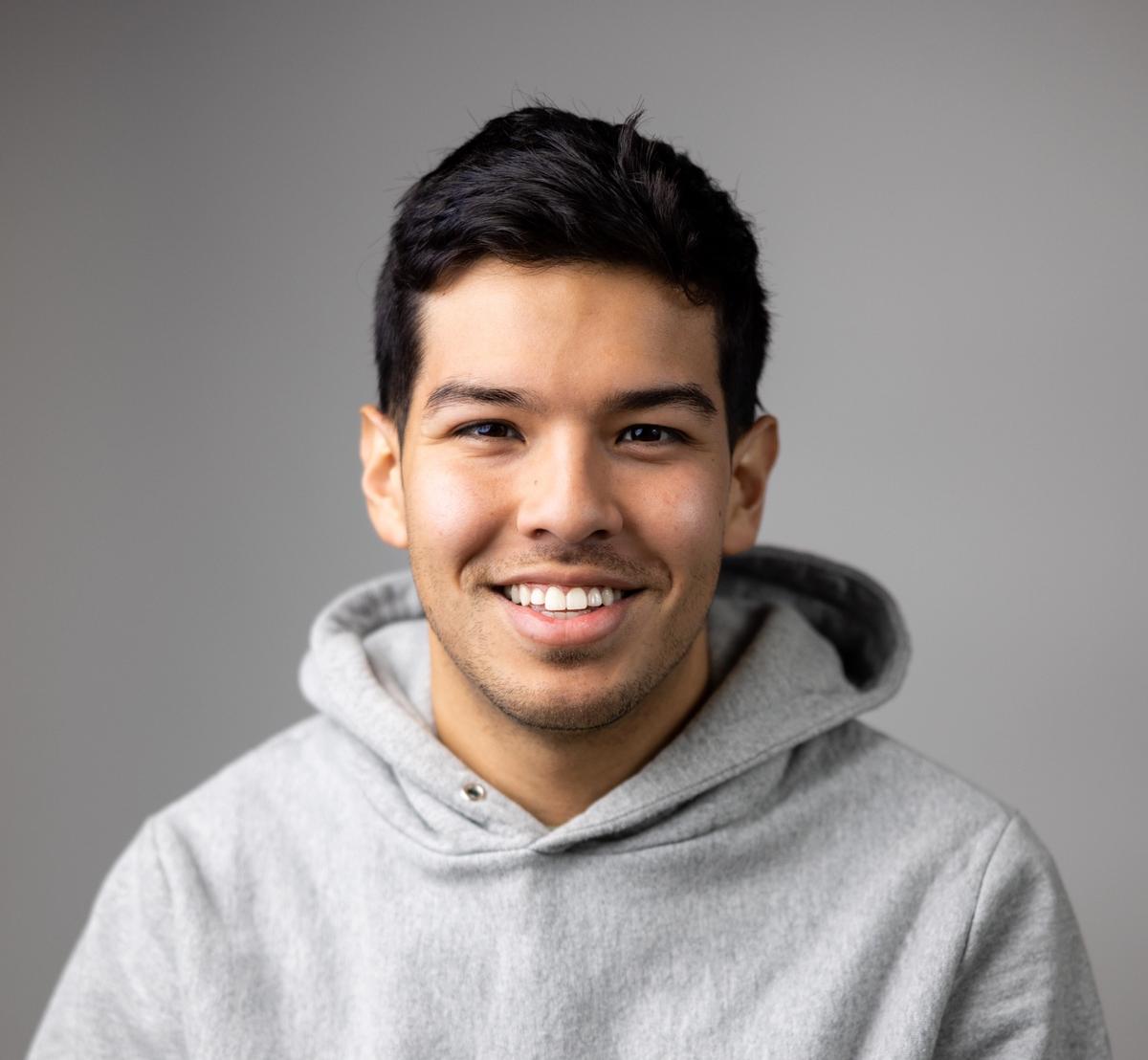
Chris Chavez
Chris Chavez launched CITIUS MAG in 2016 as a passion project while working full-time for Sports Illustrated. He covered the 2016 Olympics in Rio de Janeiro and grew his humble blog into a multi-pronged media company. He completed all six World Marathon Majors and on Feb. 15th, 2025 finally broke five minutes for the mile.
